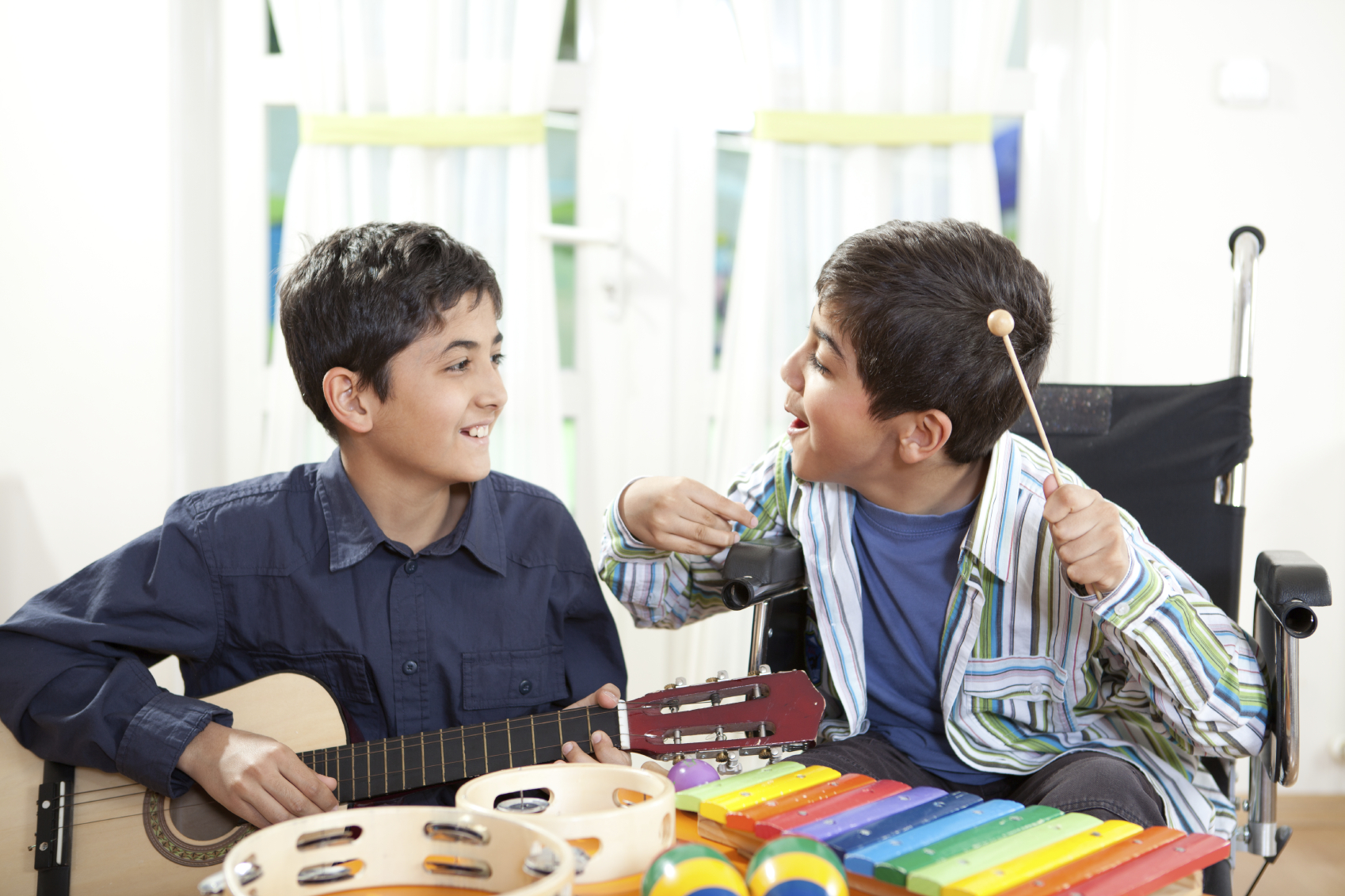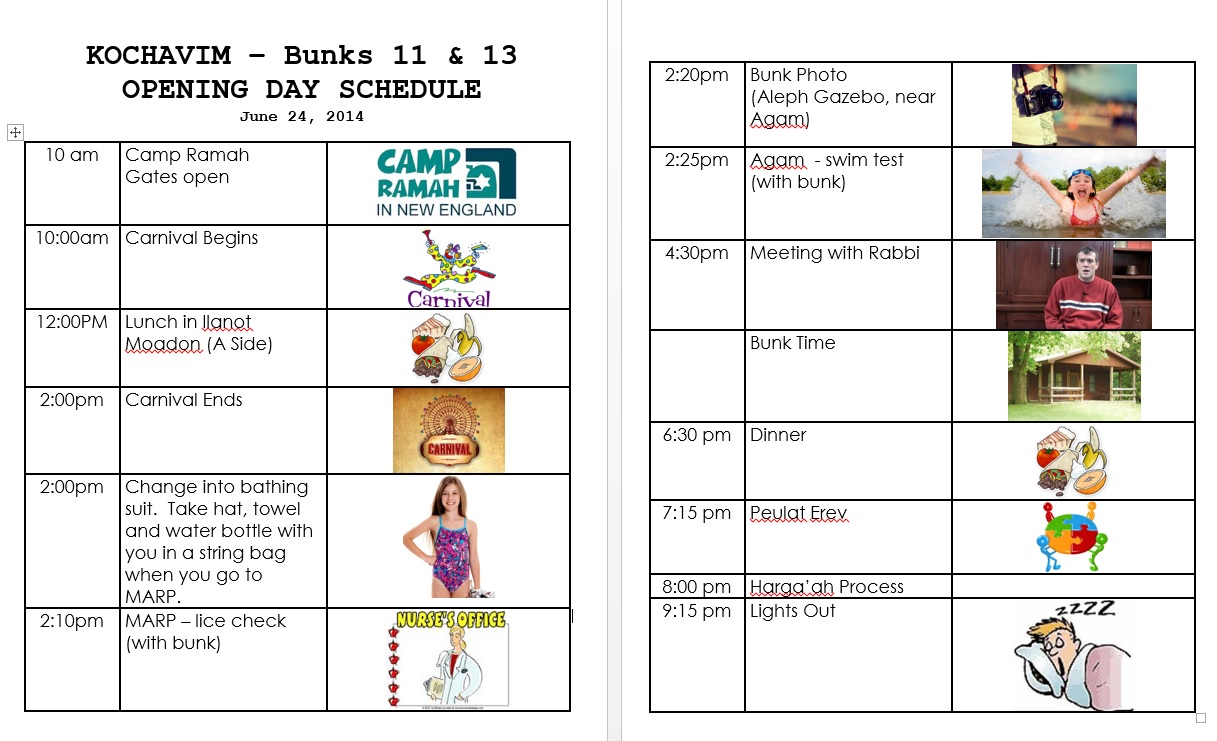Kids today have more exposure and familiarity with all sorts of differences than their parents did. Not too long ago, it was the norm for children with any kind of special needs to be educated in separate programs and schools. Today children with disabilities — both visible and invisible — are integrated in schools, Hebrew school classes, afterschool programs, camps, and sports teams.

When children are taught to regularly include their peers from a young age, inclusion becomes part of their social routine. Play experiences that start at an early age can lead to relationships that may thrive into the teen years and beyond. Playdates are tons of fun, but at times can be intimidating to plan. Here are five tips that work across various playstyles, personalities, and abilities.
Communicate

Openly share with your children the play styles and potential behaviors of their guests. This pep talk will heighten their awareness of their playmates’ needs. Say, for example, “Maria is the girl who loves to play games, but it is sometimes hard for her to stop if she is having fun. She might cry or get upset when the activity ends.” Being open will help your children better empathize with and accommodate their friends.
Adults should also be prepared to supervise and help with transitions in activities. Kids look to grownups to model accommodating the needs of others and being flexible. While some children are comfortable playing independently, other children may need some help transitioning to new activities. Adults can offer simple coaching, redirection, and also give kids a head's up before transitions to new activities.
Plan and Organize

Have a plan for the day. Everyone loves structure and predictability, particularly younger children. Make sure the play date or party has a clearly articulated beginning, middle, and end.
In the programs run at Camp Ramah, for example, an inclusion specialist will offer a visual schedule of the flow of the day with pictures, words, or both. These are especially helpful on special days where the schedule is different than normal.
Offer Variety

Present a range of activities. Not everyone loves baseball, dancing, or drawing. Try to provide options as well as breaks and safe spaces to help when kids need a positive time-out to recharge. Organizations can help by offering a designated quiet room for children of all ages who may need a place to reset during long services or loud activities.
Make sure there are food alternatives for children with allergies or arts options for children with sensory issues that make certain textures and smells unpalatable. Consider using non-food items, like stickers, as an alternative to baked goods or candy.
Ask Questions

Ask the parents of the child or children with disabilities what you can do to help maximize success. They may suggest tweaks and accommodations, perhaps something as simple as arriving five minutes early before the rest of the guests to enter a room and get used to the physical space. The parents may appreciate knowing the plan so they can prepare their children and may suggest that their child only stay for part of the activity.
In the same fashion, encourage children to ask questions too. As parents, the instinct is often to redirect a child if they ask a question that seems too direct or rude in the moment. The parents we spoke with encouraged their peers to let children talk to each other and to ask questions directly, in the moment. This builds communication but also helps build a relaxed environment and set the ground for future playdates.
Reinforce

We will all spend big parts of our lives working and interacting with all types of people. By learning to listen to and accommodate the needs of others from an early age, acceptance and understanding becomes a natural part of a child’s social interactions. By using the tips outlined above, we also incorporate and reinforce important Jewish ideas and values: that we are all created in God's image, that we are all deserving of respect, kavod, and that we are welcoming and empathetic to others.
Howard Blas served as the director of the Tikvah Program at Camp Ramah in New England for 15 years and currently serves as director of the National Ramah Tikvah Network. Howard, a social worker and special education teacher by training, teaches Jewish Studies and bar/bat mitzvah to students with a range of disabilities and special circumstances. Howard writes regularly for many Jewish publications including the Times of Israel, the Jerusalem Post, ejewishphilanthropy, The New Normal (of the New York Jewish Week) and the Connecticut Jewish Ledger. Howard received the S’fatai Tiftakh Award from Boston Hebrew College’s Center for Jewish Special Education in 2012 and the 2013 Covenant Award for Excellence in Jewish Education.
May 20, 2016